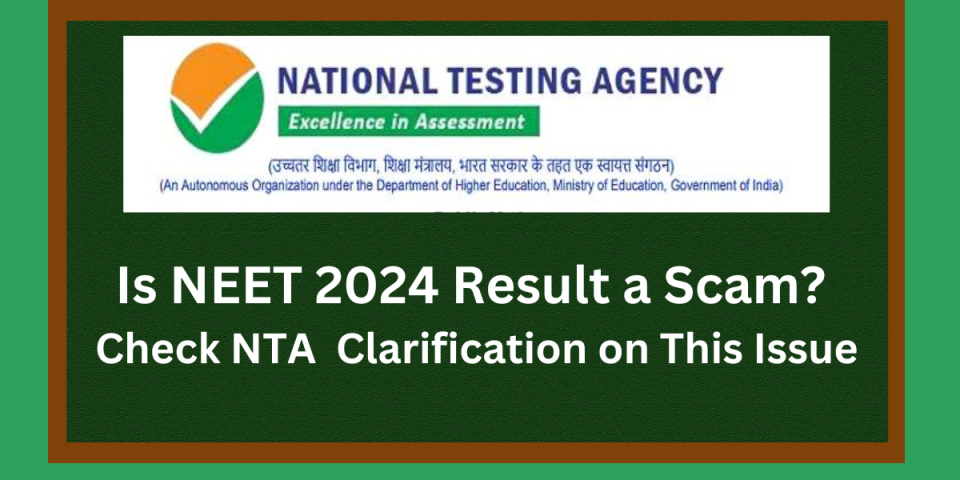The announcement of the NEET-UG 2024 results has been mired in controversy, with allegations of cheating, paper leaks, and the questionable awarding of grace marks sparking widespread concern among students, parents, and educators. Despite the National Testing Agency’s (NTA) attempts to assure the public of the exam’s integrity, doubts persist, fueling calls for greater transparency and accountability.
One of the primary sources of contention is the decision by the NTA to award grace marks to students who reported losing exam time due to technical issues. This move, based on a normalization formula prescribed by the Supreme Court, has resulted in some students achieving scores as high as 718 and 719. Such scores are statistically improbable under the standard NEET marking scheme, leading to suspicions of unfair advantages and inflated results.
Further exacerbating the controversy are accusations of a cheating scam involving Parshuram Roy, owner of a foreign education consultancy, and Tushar Bhatt, a school teacher. These individuals, along with at least 16 students from Gujarat, allegedly paid significant sums of money to fraudulently pass the exam. This scandal has severely undermined the credibility of the NEET-UG 2024 results and raised serious concerns about systemic corruption within the examination process.
Despite these allegations, the NTA has firmly denied any reports of question paper leaks. The agency has dismissed claims circulating on social media as baseless, asserting that the examination process remained secure. However, the occurrence of identical marks and percentiles among students from the same examination center in Haryana has fueled speculation about coordinated cheating efforts, further damaging the perceived integrity of the exam.
Adding to the controversy is the new tie-breaking criteria introduced by the NTA. In the event of tied scores, the criteria prioritize higher marks in Biology, Chemistry, and Physics, followed by a series of tie-breakers based on the ratio of incorrect to correct answers. The final criterion, however, uses the application number in ascending order, a measure that has been criticized as arbitrary and unfair by students and their supporters.
In response to the escalating concerns, the NTA has issued a brief statement acknowledging multiple complaints and court cases related to the exam. The agency explained that the normalization formula used to award grace marks was devised to address reported issues of lost exam time. However, this explanation has not fully addressed the broader allegations of cheating and paper leaks, leaving many stakeholders dissatisfied and calling for a more thorough investigation.
Amidst this turmoil, educational platforms like Physics Wallah have stepped in to support affected students. Alakh Pandey, CEO of Physics Wallah, has publicly urged the NTA to provide a fair resolution and reassured students that their concerns are being taken seriously. Pandey emphasized the importance of maintaining motivation and encouraged students who achieved high scores but did not secure admission to persevere and consider retaking the exam.
As the controversy surrounding the NEET-UG 2024 results continues to unfold, it is clear that restoring confidence in the examination process will require significant efforts towards transparency and integrity. The stakes are high, as the credibility of one of India’s most important medical entrance exams hangs in the balance, with the future of thousands of aspiring doctors at risk.

